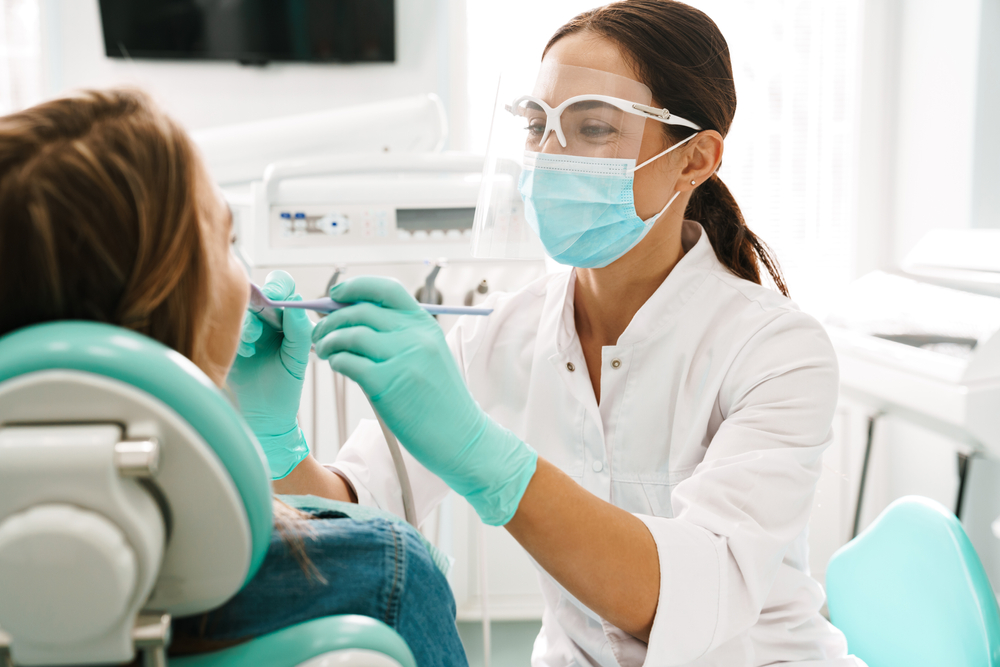
Cavities and gum disease can damage your oral health. But you should also be on the lookout for painful mouth sores.
Cavities and gum disease rank as the top two leading dental ailments. But your mouth and gums can also be breeding grounds for sores, another frequent dental complaint.
Mouth sores develop on the soft tissues of your gums, lips, cheeks, and the roof or floor of your mouth. A mouth sore typically appears as a raised lesion of varying colors or a blister within the oral cavity. Besides pain and inflammation, a mouth sore can cause tingling or burning sensations, bleeding, and difficulty swallowing. Most mouth sores are benign and usually resolve on their own. However, some signal more serious problems and must be addressed by your dentist.
Seven common types of mouth sores
Your dentist will perform a visual exam to determine what type of mouth sore you have. They may also order a biopsy. Those tests will help the dentist understand which of these seven common mouth sores you have.
Canker sores. Canker sores develop inside the mouth and appear as red-lined lesions with white, yellow, or gray centers. The most common type of mouth sore, canker sores affect one out of every ten people. White cells in the immune system attacking the lining of the mouth is one common cause. But canker sores can also form due to stress, fatigue, and the food you eat. Harmless and non-contagious, canker sores typically resolve within 10 to 14 days without treatment. Numbing solutions applied to the sore or corticosteroids can alleviate canker sore pain. You can also avoid spicy or acidic foods that irritate the sores.
Cold sores. Caused by the herpes simplex virus, cold sores or fever blisters most often erupt on the lips or the skin around the lips. Cold sores are highly contagious, so you shouldn’t kiss or share food and utensils during an outbreak. There is no cure for cold sores, but topical anesthetics can relieve the pain.
Thrush. A fungal infection, thrush causes white or red patches in the mouth. Also known as candidiasis, the sores may be caused by a decrease in bacteria in the mouth due to antibiotic treatments. Having dry mouth or taking medications that cause dry mouth can also lead to thrush. Thrush is often seen in denture wearers. Treating thrush involves managing the conditions that may have caused the sore, such as dry mouth. If no cause is determined, antifungal medications may be prescribed.
Leukoplakia. Thick, white spots on the mouth tissue are the most pronounced symptoms of leukoplakia. The leading cause is smoking, which irritates the tissues. Leukoplakia is considered harmless. However, if the lesions don’t go away on their own, they could be the first sign of oral cancer.
Erythroplakia. Like leukoplakia, erythroplakia develops due to smoking and appears as red patches on the floor of the mouth or the gums around the back teeth. Your dentist should biopsy erythroplakia lesions lasting more than a week because they are often found to be precancerous or cancerous.
Oral lichen planus. Oral lichen planus is a chronic inflammatory disorder characterized by raised white lesions or “lacelike” patches in the mouth. The lesions pose little risk of becoming cancer. Treatment centers on reducing discomfort with rinses, ointments, or medications prescribed by your dentist.
Oral cancer. Ulcerated sores appearing anywhere in the mouth may be cancerous and must be checked by a dentist, especially if they do not heal. The sores may be painless initially but can quickly grow if not caught early and treated.
How mouth sores are treated & prevented
The type of mouth sore will dictate therapy. In most cases, treatment with steroid gels, anti-inflammatories, and pain relievers can reduce the discomfort. If the sores are caused by an underlying condition, such as dry mouth or an immune disorder, those conditions must be first managed to lessen the risk of mouth sores.
You can also reduce your chances of mouth sores with excellent oral hygiene and see your dentist when the lesions do not fade on their own within weeks. Avoiding irritants such as smoking and alcohol can significantly minimize the development of mouth sores. The sooner you receive treatment, the quicker the pain will go away.
Get mouth sores treated in Wyoming
Schedule an appointment at Espire’s Casper, Wyoming, location today! Our highly trained dentists can diagnose and quickly treat your mouth sores. Don’t live near our Casper, Wyoming, office? Find one of our other locations near you.
Casper, Wyoming
1530 Centennial Ct.
Suite A
Casper, WY 82609

